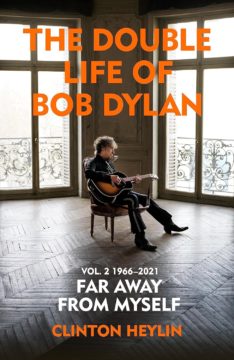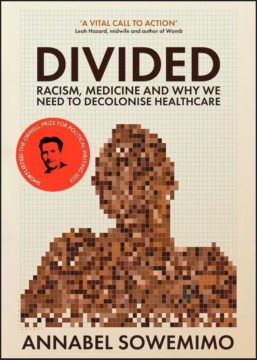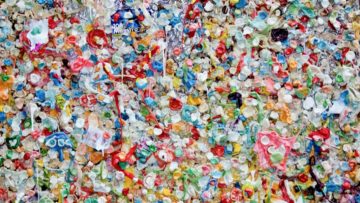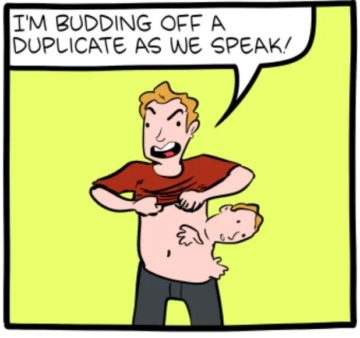Eric Foner reviews Jonathan Eig’s King: The Life of Martin Luther King in the LRB:
In March 1968, only a few days before his assassination, Martin Luther King Jr visited Long Beach, a suburb of New York City, at the invitation of a local NAACP leader. Like many suburbs at that time, Long Beach was effectively a segregated community, with an African American population living in a tiny ghetto and working in the homes of local white families. I grew up in Long Beach, but by 1968 had moved to the city. My parents, however, still lived there, and my outspoken mother arranged to see the city manager, a non-partisan administrator who exercised the authority normally enjoyed by an elected mayor. ‘A great American is visiting Long Beach,’ she declared, urging the manager to hold a reception for King at City Hall. He refused: ‘He’s a troublemaker and we don’t want him here.’
This minor incident goes unmentioned in Jonathan Eig’s new biography of King, of course. But it illustrates a theme to which Eig returns several times. People of every political persuasion now claim King as a forebear. But during his lifetime, King and the civil rights movement aroused considerable opposition, not only in the South. The government sought to destroy King’s reputation. With the authorisation of John F. Kennedy and Lyndon Johnson, the FBI listened in on his phone calls with close associates and planted informers in his circle. Convinced the civil rights movement was a communist plot, J. Edgar Hoover’s G-men gathered recordings of his trysts with women and mailed them to his house, accompanied by an unsigned letter suggesting that he take his own life.
More here.

 W
W The insurrection failed. The system held — at least for a time. In November 1923, when a young demagogue named Adolf Hitler tried to start a Nazi revolution from a Munich beer hall, his attempted coup was so disorganized that it swiftly degenerated into bumbling confusion. One participant later testified that the operation was such a farce that he whispered to others, “Play along with this comedy.”
The insurrection failed. The system held — at least for a time. In November 1923, when a young demagogue named Adolf Hitler tried to start a Nazi revolution from a Munich beer hall, his attempted coup was so disorganized that it swiftly degenerated into bumbling confusion. One participant later testified that the operation was such a farce that he whispered to others, “Play along with this comedy.” The health service is a contradiction. It has been built on immigrant labour from conception to the present day. Walk into many NHS services, and you will find it is Black and Brown faces that are assessing, diagnosing and treating. Yet we find huge race-based health disparities, in maternity, mental health, Covid-19 deaths and more.
The health service is a contradiction. It has been built on immigrant labour from conception to the present day. Walk into many NHS services, and you will find it is Black and Brown faces that are assessing, diagnosing and treating. Yet we find huge race-based health disparities, in maternity, mental health, Covid-19 deaths and more. The first time I heard about the
The first time I heard about the  C
C There’s a fun math problem here about how much space you need to turn your car around, and mathematicians have been working on an idealized version of it for over 100 years. It started in 1917 when the Japanese mathematician Sōichi Kakeya posed a problem that sounds a little like our traffic jam. Suppose you’ve got an infinitely thin needle of length 1. What’s the area of the smallest region in which you can turn the needle 180 degrees and return it to its original position? This is known as Kakeya’s needle problem, and mathematicians are still studying variations of it. Let’s take a look at the simple geometry that makes Kakeya’s needle problem so interesting and surprising.
There’s a fun math problem here about how much space you need to turn your car around, and mathematicians have been working on an idealized version of it for over 100 years. It started in 1917 when the Japanese mathematician Sōichi Kakeya posed a problem that sounds a little like our traffic jam. Suppose you’ve got an infinitely thin needle of length 1. What’s the area of the smallest region in which you can turn the needle 180 degrees and return it to its original position? This is known as Kakeya’s needle problem, and mathematicians are still studying variations of it. Let’s take a look at the simple geometry that makes Kakeya’s needle problem so interesting and surprising. China’s property sector is the
China’s property sector is the  C
C Brain development is a carefully choreographed dance. Neurons develop specialized functions and, in small hops, move through the brain to get into the correct position. The chemical signals coursing through the resulting network allow animals to think, feel, and live. In neurodevelopmental disorders (NDD), however, hundreds of mutations in the DNA can interrupt this process. But scientists still do not know how each of these mutations interrupts the neurons’ precise differentiation or migration patterns. Studying these defects directly in embryos or newborns is too dangerous, and other animal models may deviate from human development.
Brain development is a carefully choreographed dance. Neurons develop specialized functions and, in small hops, move through the brain to get into the correct position. The chemical signals coursing through the resulting network allow animals to think, feel, and live. In neurodevelopmental disorders (NDD), however, hundreds of mutations in the DNA can interrupt this process. But scientists still do not know how each of these mutations interrupts the neurons’ precise differentiation or migration patterns. Studying these defects directly in embryos or newborns is too dangerous, and other animal models may deviate from human development. I WAS AMONG MANY THAIS
I WAS AMONG MANY THAIS Consider how you hold a piece of chalk. Not by the handle: it doesn’t have one. Or, if it does, that handle is of the chalk’s own substance, flesh of its flesh, distinguishable only because it is the bit left in your hand when you can’t write anymore. A useless nub, or stub, or butt. Its persistence is a faint embarrassment, a remainder you don’t know what to do with—maybe you should stuff it in your pocket, or leave it in the tray with the erasers, or drop it on the floor and grind it into dust with your heel. It’s a waste, surely, just to throw it out. But it cannot be grafted onto another piece of chalk, not without gratuitous ingenuity, nor can it be used to hold anything else. It’s like the end of a pencil or of a filterless cigarette. Life is a midden of such abandoned handles. You didn’t even know they were handles, until they lost their grip and you were left holding them in a pinch, a pinch that can narrow, without your noticing, to contempt.
Consider how you hold a piece of chalk. Not by the handle: it doesn’t have one. Or, if it does, that handle is of the chalk’s own substance, flesh of its flesh, distinguishable only because it is the bit left in your hand when you can’t write anymore. A useless nub, or stub, or butt. Its persistence is a faint embarrassment, a remainder you don’t know what to do with—maybe you should stuff it in your pocket, or leave it in the tray with the erasers, or drop it on the floor and grind it into dust with your heel. It’s a waste, surely, just to throw it out. But it cannot be grafted onto another piece of chalk, not without gratuitous ingenuity, nor can it be used to hold anything else. It’s like the end of a pencil or of a filterless cigarette. Life is a midden of such abandoned handles. You didn’t even know they were handles, until they lost their grip and you were left holding them in a pinch, a pinch that can narrow, without your noticing, to contempt. A
A It’s pretty clear that, on a direct one-v-one cage match, an asexual organism would have much better fitness than a similarly-shaped sexual organism. And yet, all the macroscopic species, including ourselves, do it. What gives?
It’s pretty clear that, on a direct one-v-one cage match, an asexual organism would have much better fitness than a similarly-shaped sexual organism. And yet, all the macroscopic species, including ourselves, do it. What gives? Mr. Trump and others on the right deride the new norms as “woke,” a term with strongly pejorative connotations. I prefer a more neutral phrase, which emphasizes that this ideology focuses on the role that groups play in society and draws on a variety of intellectual influences such as postmodernism, postcolonialism and critical race theory: the “identity synthesis.”
Mr. Trump and others on the right deride the new norms as “woke,” a term with strongly pejorative connotations. I prefer a more neutral phrase, which emphasizes that this ideology focuses on the role that groups play in society and draws on a variety of intellectual influences such as postmodernism, postcolonialism and critical race theory: the “identity synthesis.”